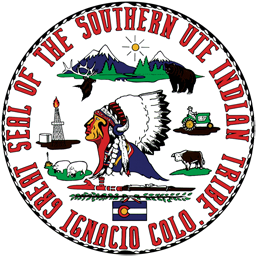FOR MORE INFORMATION CONTACT
Christine Sage, Chairman – 970.563.0100
FOR IMMEDIATE RELEASE: June 4, 2020 – 9:00 A.M.
Federal Agencies Narrow Scope of Federally Protected “Waters of the United States” But Tribe Intends to Protect Tribal Waters
Southern Ute Indian Reservation – Notwithstanding the Tribe’s strong opposition, on January 23, 2020, the Environmental Protection Agency and the U.S. Army Corps of Engineers (collectively the “Agencies”), the agencies responsible for administering the Clean Water Act, finalized a rule to define “waters of the United States” (“Final Rule”). Under the Clean Water Act, there is federal authority to regulate the discharge of pollutants and the placement of fill into “navigable waters.” The Clean Water Act defines “navigable waters” to mean “the waters of the United States.” Whether a particular water body is jurisdictional as a “water of the United States” is a threshold question for determining whether a discharge into that water will require a permit under the Clean Water Act or whether a spill (i.e., an unpermitted discharge) is a violation of the Clean Water Act and subject to an enforcement action by the Agencies. In other words, under the Clean Water Act, the scope of federal regulatory authority is limited to “waters of the United States.”
The Final Rule substantially narrows the scope of waterbodies subject to federal regulation under the Clean Water Act – notably excluding ephemeral features (those that flow only in response to precipitation events) that are prevalent throughout the southwestern United States and on the Southern Ute Indian Reservation. The Final Rule also excludes non-adjacent wetlands, groundwater, and many farm and roadside ditches.
For proposed development and work in or near excluded waterbodies on the Reservation, the Final Rule will reduce developers’ federal permitting obligations. In the event of a spill into previously protected but now excluded waterbodies on the Reservation, the Final Rule will reduce owner and operators’ spill reporting obligations and the risk of a federal enforcement action. The Final Rule will also remove some development from the applicability of EPA’s oil spill prevention program and the obligation to prepare a spill prevention, control and countermeasure plan. In other words, the Final Rule leaves water resources on the Southern Ute Indian Reservation less protected.
The Final Rule becomes effective on June 22, 2020.
In response to the Final Rule, the Southern Ute Indian Tribe intends to protect excluded waterbodies on tribal trust land through the exercise of the Tribe’s regulatory authority (e.g., water quality standards) and contracting authority (e.g., land use and environmental protection stipulations in grants of rights-of-way and leases). In the event of a spill into previously protected but now excluded waterbodies on the Reservation, the Final Rule will reduce owner and operators’ spill reporting obligations and the risk of a federal enforcement action and, correspondingly, potentially reduce the owner and operators’ remediation responsibilities. For excluded waters on private property within the Reservation, the Tribe intends to carefully monitor activities impacting or that have the potential to impact those waterbodies. If an activity harms an excluded waterbody on private property and threatens to harm or results in harm to excluded waterbodies on tribal land, the Tribe will consider taking appropriate action to protect water quality. If the State of Colorado plans to implement a state-only program, such as a Clean Water Act Section 404 program, the Tribe plans to ensure that the statutes authorizing such a program and the regulations include language recognizing the limitations on the State’s authority on the Reservation. Finally, the Tribe expects all companies working on the Reservation, regardless of the current regulatory environment on a federal level, to use best management practices and to implement all appropriate measures to prevent adverse impacts to the Reservation’s water resources.
###
